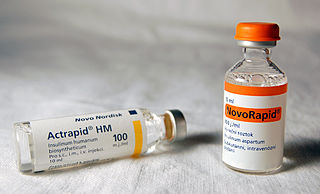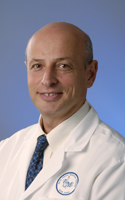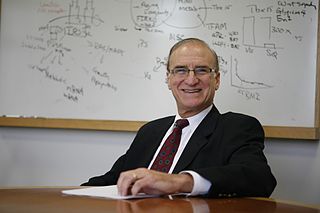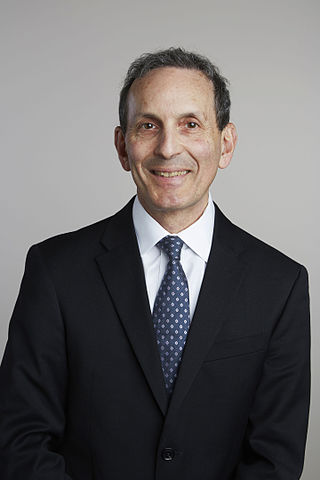Insulin resistance (IR) is a pathological condition in which cells either fail to respond normally to the hormone insulin or downregulate insulin receptors in response to hyperinsulinemia.

Beta cells (β-cells), are specialized endocrine cells located within the pancreatic islets of Langerhans responsible for the production and release of insulin and amylin. Constituting ~50–70% of cells in human islets, beta cells play a vital role in maintaining blood glucose levels.Problems with beta cells can lead to disorders such as diabetes.

Type 2 diabetes (T2D), formerly known as adult-onset diabetes, is a form of diabetes mellitus that is characterized by high blood sugar, insulin resistance, and relative lack of insulin. Common symptoms include increased thirst, frequent urination, fatigue and unexplained weight loss. Symptoms may also include increased hunger, having a sensation of pins and needles, and sores (wounds) that do not heal. Often symptoms come on slowly. Long-term complications from high blood sugar include heart disease, strokes, diabetic retinopathy which can result in blindness, kidney failure, and poor blood flow in the limbs which may lead to amputations. The sudden onset of hyperosmolar hyperglycemic state may occur; however, ketoacidosis is uncommon.

Sex hormone-binding globulin (SHBG) or sex steroid-binding globulin (SSBG) is a glycoprotein that binds to androgens and estrogens. When produced by the Sertoli cells in the seminiferous tubules of the testis, it is called androgen-binding protein (ABP).

Glucose transporters are a wide group of membrane proteins that facilitate the transport of glucose across the plasma membrane, a process known as facilitated diffusion. Because glucose is a vital source of energy for all life, these transporters are present in all phyla. The GLUT or SLC2A family are a protein family that is found in most mammalian cells. 14 GLUTS are encoded by the human genome. GLUT is a type of uniporter transporter protein.
The term diabetes includes several different metabolic disorders that all, if left untreated, result in abnormally high concentrations of a sugar called glucose in the blood. Diabetes mellitus type 1 results when the pancreas no longer produces significant amounts of the hormone insulin, usually owing to the autoimmune destruction of the insulin-producing beta cells of the pancreas. Diabetes mellitus type 2, in contrast, is now thought to result from autoimmune attacks on the pancreas and/or insulin resistance. The pancreas of a person with type 2 diabetes may be producing normal or even abnormally large amounts of insulin. Other forms of diabetes mellitus, such as the various forms of maturity-onset diabetes of the young, may represent some combination of insufficient insulin production and insulin resistance. Some degree of insulin resistance may also be present in a person with type 1 diabetes.
Glucose transporter type 4 (GLUT4), also known as solute carrier family 2, facilitated glucose transporter member 4, is a protein encoded, in humans, by the SLC2A4 gene. GLUT4 is the insulin-regulated glucose transporter found primarily in adipose tissues and striated muscle. The first evidence for this distinct glucose transport protein was provided by David James in 1988. The gene that encodes GLUT4 was cloned and mapped in 1989.
Douglas A. Melton is an American medical researcher who is the Xander University Professor at Harvard University, and was an investigator at the Howard Hughes Medical Institute until 2022. Melton serves as the co-director of the Harvard Stem Cell Institute and was the first co-chairman of the Harvard University Department of Stem Cell and Regenerative Biology. Melton is the founder of several biotech companies including Gilead Sciences, Ontogeny, iPierian, and Semma Therapeutics. Melton holds membership in the National Academy of the Sciences, the American Academy of Arts and Sciences, and is a founding member of the International Society for Stem Cell Research.

SHC-transforming protein 1 is a protein that in humans is encoded by the SHC1 gene. SHC has been found to be important in the regulation of apoptosis and drug resistance in mammalian cells.

Receptor-type tyrosine-protein phosphatase N2 (R-PTP-N2) also known as islet cell autoantigen-related protein (ICAAR) and phogrin is an enzyme that in humans is encoded by the PTPRN2 gene. PTPRN and PTPRN2 are both found to be major autoantigens associated with insulin-dependent diabetes mellitus.

NADPH oxidase 3 is an enzyme that in humans is encoded by the NOX3 gene.

As a medication, insulin is any pharmaceutical preparation of the protein hormone insulin that is used to treat high blood glucose. Such conditions include type 1 diabetes, type 2 diabetes, gestational diabetes, and complications of diabetes such as diabetic ketoacidosis and hyperosmolar hyperglycemic states. Insulin is also used along with glucose to treat hyperkalemia. Typically it is given by injection under the skin, but some forms may also be used by injection into a vein or muscle. There are various types of insulin, suitable for various time spans. The types are often all called insulin in the broad sense, although in a more precise sense, insulin is identical to the naturally occurring molecule whereas insulin analogues have slightly different molecules that allow for modified time of action. It is on the World Health Organization's List of Essential Medicines. In 2020, regular human insulin was the 307th most commonly prescribed medication in the United States, with more than 1 million prescriptions.
Derek LeRoith is a South African endocrinologist and Professor of Medicine and the current Chief of the Hilda and J. Lester Gabrilove, M.D. Division of Endocrinology, Diabetes and Bone Disease and Director of the Metabolism Institute of the Mount Sinai Medical Center in New York City. He is an international expert in insulin-like growth factor-1 (IGF-1).

JeffreyFlier is an American physician, endocrinologist; widely cited scientist; the Higginson Professor of Medicine and Physiology at Harvard Medical School; and a Distinguished Service Professor at the same institution. He was the 21st Dean of the Faculty of Medicine at Harvard University from 2007 to 2016.

Leonid Poretsky is a Russian-born American endocrinologist. His research interests include mechanisms of insulin action in the ovary, endocrinological aspects of AIDS, and clinical outcomes in diabetes. He has authored over 150 publications and has served on the National Institutes of Health's review committees and on the editorial boards of the Journal of Clinical Endocrinology and Metabolism and other endocrine journals.

Carl Ronald Kahn is an American physician and scientist, best known for his work with insulin receptors and insulin resistance in diabetes and obesity. He is the Chief Academic Officer at Joslin Diabetes Center, the Mary K. Iacocca Professor of Medicine at Harvard Medical School and a member of the National Academy of Sciences since 1999.

Diabetes mellitus, often known simply as diabetes, is a group of common endocrine diseases characterized by sustained high blood sugar levels. Diabetes is due to either the pancreas not producing enough insulin, or the cells of the body becoming unresponsive to the hormone's effects. Classic symptoms include thirst, polyuria, weight loss, and blurred vision. If left untreated, the disease can lead to various health complications, including disorders of the cardiovascular system, eye, kidney, and nerves. Untreated or poorly treated diabetes accounts for approximately 1.5 million deaths every year.

Patrik Rorsman FRS FMedSci is Professor of Diabetic Medicine at the Oxford Centre for Diabetes, Endocrinology and Metabolism (OCDEM), in the Radcliffe Department of Medicine at the University of Oxford and a fellow of Harris Manchester College, Oxford.

Daniel Joshua Drucker is a Canadian endocrinologist. A Fellow of the Royal Society, he is a professor of medicine at the Lunenfeld-Tanenbaum Research Institute, Mount Sinai Hospital, Toronto. He is known for his research into intestinal hormones and their use in the treatment of diabetes and other metabolic diseases.

Evan Dale Abel is an American endocrinologist who serves as Chair of the Department of Medicine at the David Geffen School of Medicine at UCLA. His works on the molecular mechanisms that underpin cardiac failure in diabetes. He is a Fellow of the American Heart Association and the American College of Physicians. He was elected a member of the National Academy of Sciences in 2022.













